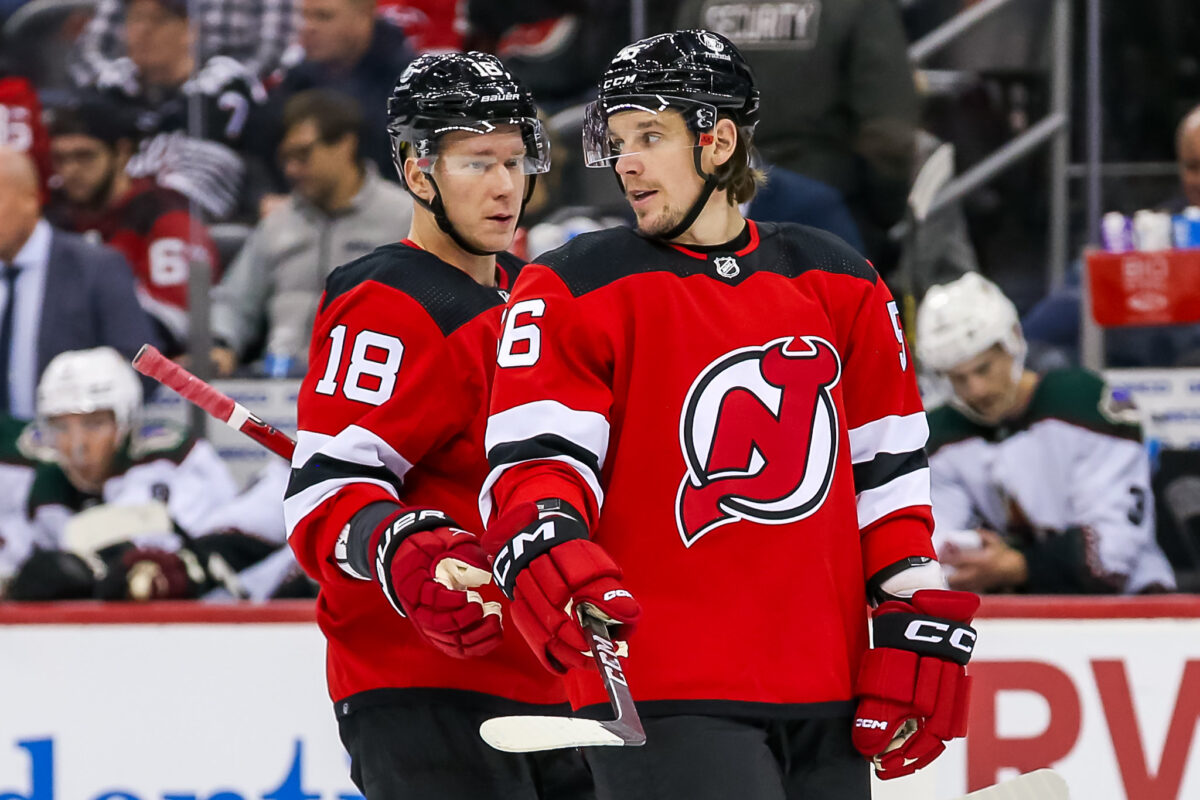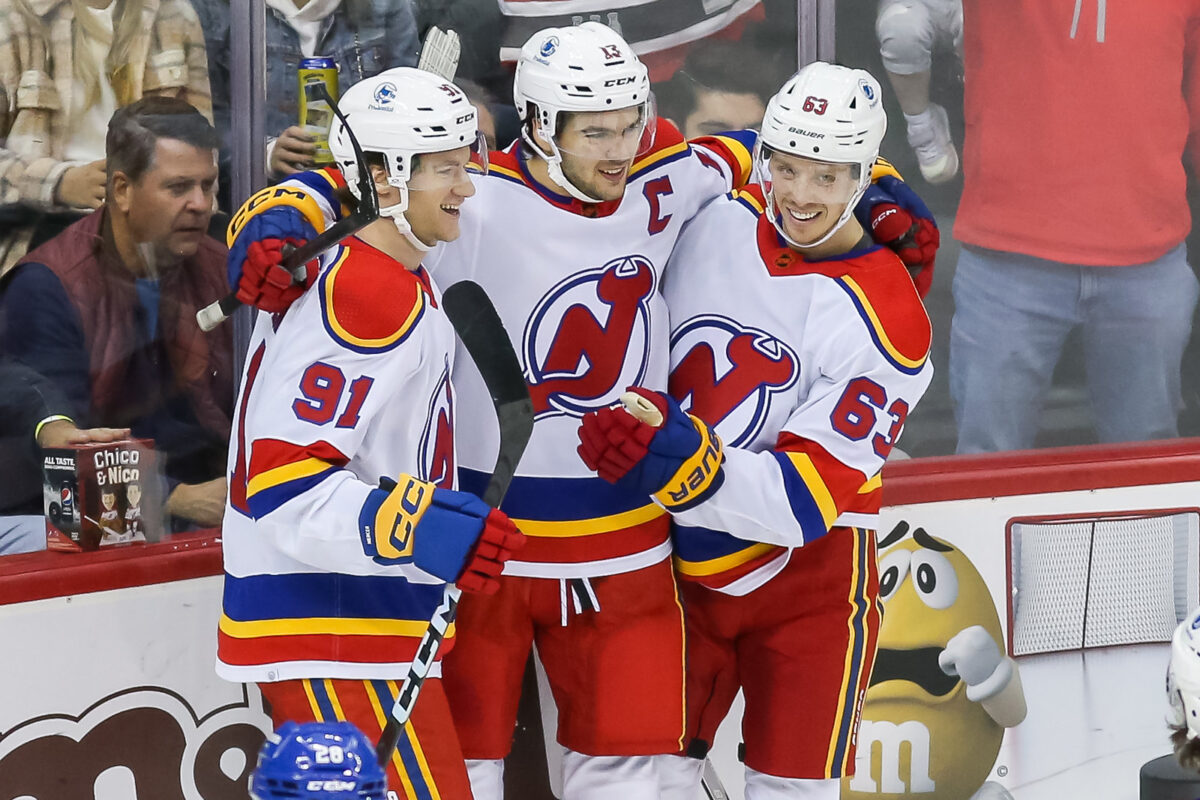Creating a winning team is much like creating a delicious casserole. Any cook can follow the recipe when the pantry is fully stocked, but what separates the amateur from the professional is how one can construct the meal when ingredients are unavailable. Like an award-winning chef, Devils general manager Tom Fitzgerald was wise enough to stock his pantry with a broad array of talent to be able to put a good product on the ice still, even if he was missing some ingredients.

When two-time Stanley Cup champion Ondrej Palat signed as a free agent, he told the media that he was coming from a team where it seemed all the players had children of their own to a team where many of the players were not far removed from being kids themselves. Over the past few years, Fitzgerald has transformed a young, talented team lacking in experience into a well-balanced group of players with multiple leaders and leadership styles. He proactively sought out veteran leaders like Palat, Brendan Smith, Erik Haula, and Tyler Toffoli to supplement his young core.
Related: Devils’ GM Fitzgerald Addresses Goaltending & More
Fitzgerald brought in players who had been through the playoff wars to set a standard for the younger players to follow in his dressing room. Between them, Palat, Smith, Haula, and Toffoli brought 343 games of playoff experience, six appearances in the Stanley Cup Final, and have raised the Cup three times collectively. To their credit, the veterans have accepted the leadership of captain Nico Hischier, who presents a level of gravitas belied by his age. While initially deferred to his older teammates, during the past two seasons, he has become more assertive as a leader, carving out a style befitting his personality while not stifling the contributions of the veterans. This collaboration became critical as the Devils experienced a rash of injuries, taking down their captain and both assistant captains for significant stretches during the season.
The Importance of the “A”
NHL Rule 6.1 dictates that a team may have only one captain and two alternate captains or three alternate captains and no captain. For the past two seasons now, the Devils have bestowed the “A,” indicating alternate captains, on Jack Hughes and Ondrej Palat, recognizing the ascendency of the superstar Hughes and the experience of veteran Palat. This season, with the two players injured for extended periods, the Devils have sewn As on the chests of two very different players, Haula and Jesper Bratt. Head coach Lindy Ruff made the call because, “[F]or the “A,” those are veteran guys who are looking to lead. You have a veteran guy who’s been through lots of battles in Haula and a guy who’s having a career year and been a long-time Devil in Bratt.” Players in the locker room similarly lavished praise on the leadership of the two players.
Despite being stall neighbors and growing up in neighboring countries, nobody would ever confuse Haula and Bratt for each other. One plays with a brash, even cocky, confidence and wears his heart on his sleeve, while the other is the epitome of calmness, using his pace and deception to succeed. Toffoli, who knows what it takes to achieve playoff success, described the two, “Obviously, Haulzy is very vocal, and he takes a lot of pride in trying to drag the guys into the fight sometimes when the emotion may not be fully there. And with Bratter, he’s one of the longer tenured guys here, and I think everybody respects the work ethic he brings to practice and games.”
Haula Has Found a Home in Jersey
Haula has been successful at every stop in his 11-year career, having made the playoffs each season. The Devils are his sixth team in the last six years, leading some to speculate that Haula wears out his welcome at each stop. That has not been the case in New Jersey as the Finnish forward made a passionate plea to Fitzgerald at last season’s exit interview that he wished to remain in New Jersey long-term as he felt he had finally found a home. His loyalty was rewarded with a three-year contract extension.
“I don’t want to play for any other team. This is my family.”
Devils Center Erik Haula, May 13, 2023, in the Devils Dressing Room
After a rough start, Haula has been a difference-maker for New Jersey since returning from last season’s All-Star break. In that time, Haula has been fifth on the team in goals and sixth in points, fifth in hits among forwards and has won faceoffs at a nearly 55 percent clip. His production on the ice only tells part of the story; his teammates often credit him for his vocal leadership. Palat speaks highly of what Haula brings to the room, “Even if he doesn’t have an “A,” he’s a leader. He’s done a great job talking to guys during intermission. He’s very vocal in the room when we need it.” The willingness to hold his teammates accountable has been Haula’s most vital contribution to the team and why he was recognized with the “A” by the coaching staff.
Bratt Is the Definition of Good Player Development
Few sixth-round picks end up playing NHL games, even fewer play six seasons in the NHL, fewer than that lead an NHL team in scoring for a season, and even fewer are bestowed with a letter on their sweater by an NHL team’s coaching staff. Jesper Bratt, a sixth-round pick in 2016, has defied the odds and accomplished all of the above. The speedy, talented forward has played at an All-Star level for three years now despite not earning a trip to the midseason game. This season, he has played in every game and been the team’s most consistent offensive weapon. He currently leads the team in assists (31), points (48), and game-winning goals (5). His skating ability and agility are elite, but what has drawn notice from the coaches and his peers is his assertiveness as a leader.

Last summer, the Devils inked Bratt to an eight-year contract, ensuring the Swede would play out his entire prime with the Devils. In training camp, there was a different vibe around him as he seemed more comfortable and more in command. Nico Hischier and Bratt began their careers together, and Hischier has seen the evolution of Bratt into a team leader. “We came in together, we grew as players and persons, and we’re still learning, but he’s a big part of our group. He’s a really smart guy, too, and when something needs to be said, he’s not afraid to say it.”
The evolution of Bratt from a late-round pick to the player who will top 70 points for the third straight season is a success for the player and the Devils’ player development program. His on-ice play, coupled with his leadership in the room, has made the guy his teammates call Bratter indispensable and is why he has been bestowed with an “A” in the absence of Hughes.
As the season bounds between success and catastrophe and the injuries mount, the Devils are going to need contributions from all of their players. The recognition of Haula and Bratt as alternate captains is a testament to the notion that leadership does not come in one form but works best when it reflects a personal style. Haula and Bratt employ different styles, but their messages are the same: do all the little things necessary to win, don’t stop competing, and play the game the right way, and you will be rewarded. The Devils must lean on their healthy vets to provide the substitute ingredients necessary to navigate the injuries and fight to return to the playoffs.
